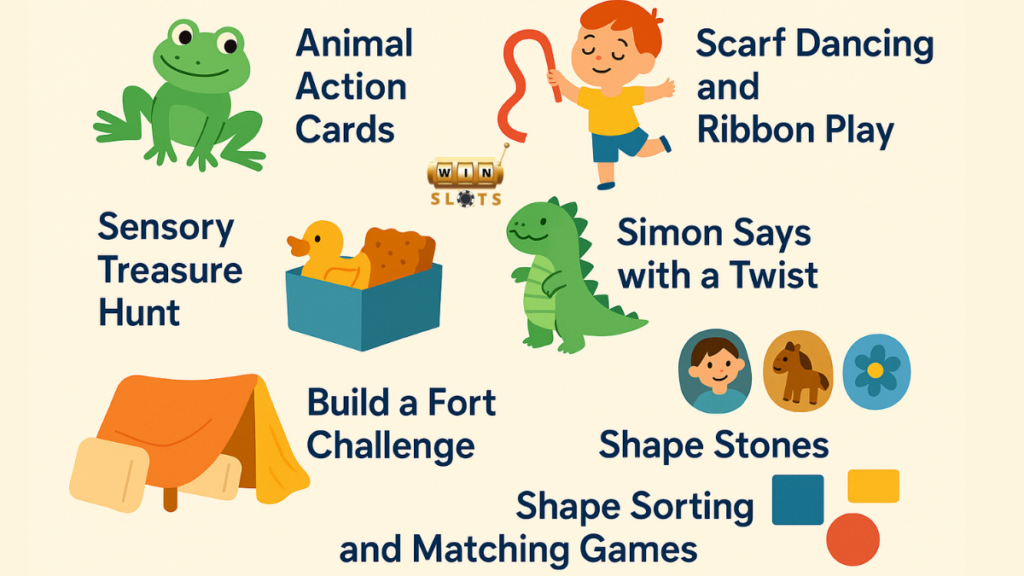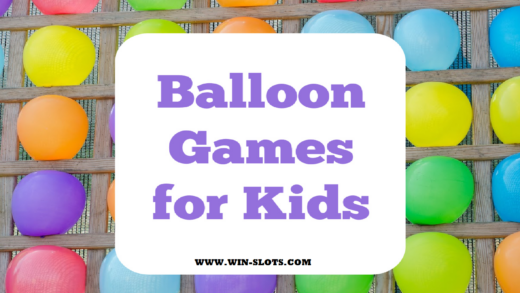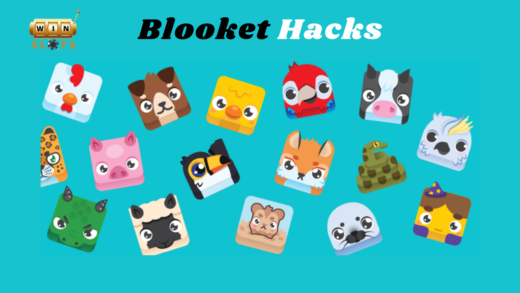In a world where screens are everywhere, many UK parents are looking for a healthier balance—especially for toddlers and preschoolers. For children aged 2 to 5, real-world play still reigns supreme in helping them grow, explore, and learn. That’s where screen-free games for kids come in.
These non-digital games keep little ones entertained, active, and thinking—without the need for tablets, phones, or TVs. In 2025, the trend in the UK is clear: families are embracing hands-on, creative, and cooperative play that develops essential skills and encourages imagination.
Below are the top-rated toddlers activities and screen-free games UK parents are loving right now.
Why Screen-Free Play Still Matters
Toddlers are in a rapid stage of cognitive, emotional, and physical development. While screens can be useful in moderation, too much screen time can affect attention span, sleep, and communication.
Screen-free games provide:
- Tactile learning experiences through hands-on exploration
- Improved focus and patience by slowing the pace of play
- Stronger language development through interactive storytelling and dialogue
- Social-emotional skills through face-to-face play with others
The best part? These games can be played anywhere—with minimal setup and maximum engagement.

1. Animal Action Cards
These easy-to-make cards show different animals and actions (e.g., “Jump like a frog” or “Stomp like an elephant”). Kids draw a card and act it out.
What It Teaches:
- Gross motor skills
- Animal recognition
- Following instructions
Make your own set at home or buy pre-made decks from educational stores across the UK.
2. Scarf Dancing and Ribbon Play
Using lightweight scarves or ribbons, kids can twirl, spin, and dance to music or rhythm. Add simple commands like “freeze” or “twirl low” to enhance coordination.
Benefits:
- Promotes creativity and expression
- Develops rhythm and body awareness
- Encourages physical activity indoors
This is a favorite at UK playgroups and toddler music classes.
3. Sensory Treasure Hunt
Fill boxes with safe, textured items (sponges, soft toys, wooden blocks, rice) and let toddlers explore with their hands while searching for small hidden toys.
Why Kids Love It:
- It’s like a mystery adventure
- Boosts sensory exploration
- Teaches matching, sorting, and naming objects
Sensory play has become a go-to non-digital game for early years educators in the UK.
4. Simon Says with a Twist
Classic Simon Says gets an update with themed commands: “Simon says roar like a dinosaur,” or “Waddle like a penguin.” Add props for more fun.
Developmental Perks:
- Builds listening and self-regulation skills
- Strengthens memory and sequencing
- Ideal for group play or solo sessions
Great for rainy days indoors or garden play when the sun’s out.
5. Build a Fort Challenge
Give toddlers cushions, blankets, and cardboard boxes. Let them build their own forts or dens, then play pretend inside. Add toys, books, or snacks for bonus fun.
Learning Through Play:
- Sparks imagination and problem-solving
- Encourages teamwork with siblings or friends
- Offers a cozy, screen-free retreat space
This type of play supports independence and creativity at any age.
6. Story Stones
Story stones are painted rocks with pictures of people, animals, and objects. Kids draw a stone and use it to help tell a story, either alone or with others.
Benefits Include:
- Boosts early literacy and imagination
- Enhances verbal expression
- Builds narrative and sequencing skills
Parents in the UK often use these during bedtime routines or circle time.
7. Shape Sorting and Matching Games
Using household items or pre-made kits, kids can sort shapes, colors, or sizes. Create DIY shape cards or invest in a wooden sorter.
Educational Gains:
- Introduces basic math concepts
- Develops spatial awareness
- Encourages independent thinking
This is one of the most popular toddlers activities recommended by UK preschool teachers.
Tips for Successful Screen-Free Play
- Rotate toys and games weekly to keep interest high
- Create themed playdays (e.g., animal day, shapes day, pretend-play day)
- Join in—kids play longer and learn more when parents engage
- Keep it simple—you don’t need fancy toys to make playtime valuable
Even 15–20 minutes of quality screen-free play a few times a day can make a big difference in a young child’s development.
Recommendations
Screen-Free Games for Kids: UK’s Top Picks for 2–5 Year Old’s
Best Educational Games for Toddlers 2025: USA and UK Parents’ Favorites
Must-Have Sensory Toys and Games for Toddlers in Australia
Fun Backyard Games for 4-Year-Olds: USA Summer Favorites
Jenxyz Math Games: The Learning Game For Kids
Best Water Balloon Games Ideas For Kids
Snake.is MLG Edition – A High-Octane Twist on Classic Snake Gameplay
Conclusion
In 2025, UK families are embracing screen-free games for kids as a powerful way to connect, educate, and play. Whether it’s dancing with scarves, building forts, or telling stories with stones, these non-digital games turn everyday moments into learning opportunities. For toddlers, nothing beats the real-world joy of discovery—no screens required.
FAQs
Q1: How much screen time is appropriate for 2–5-year-olds?
A: Health experts recommend no more than one hour of high-quality screen time per day for preschoolers. Less is better when replaced with active play.
Q2: What if my child only wants screen-based games?
A: Introduce screen-free options gradually. Start with hands-on versions of their favorite characters or themes and play together to model the fun.
Q3: Are screen-free games enough to support learning?
A: Absolutely. Many screen-free games help build language, motor skills, logic, and emotional intelligence—key areas of early childhood development.
Q4: Can these games be played independently?
A: Yes. Many games like sensory bins, shape sorting, and storytelling can be enjoyed solo, but toddlers benefit more when adults or peers join in.
Q5: Where can I buy non-digital games in the UK?
A: Local toy shops, bookstores, and UK-based online retailers like The Works, Early Learning Centre, and JoJo Maman Bébé stock a wide range of screen-free options.



